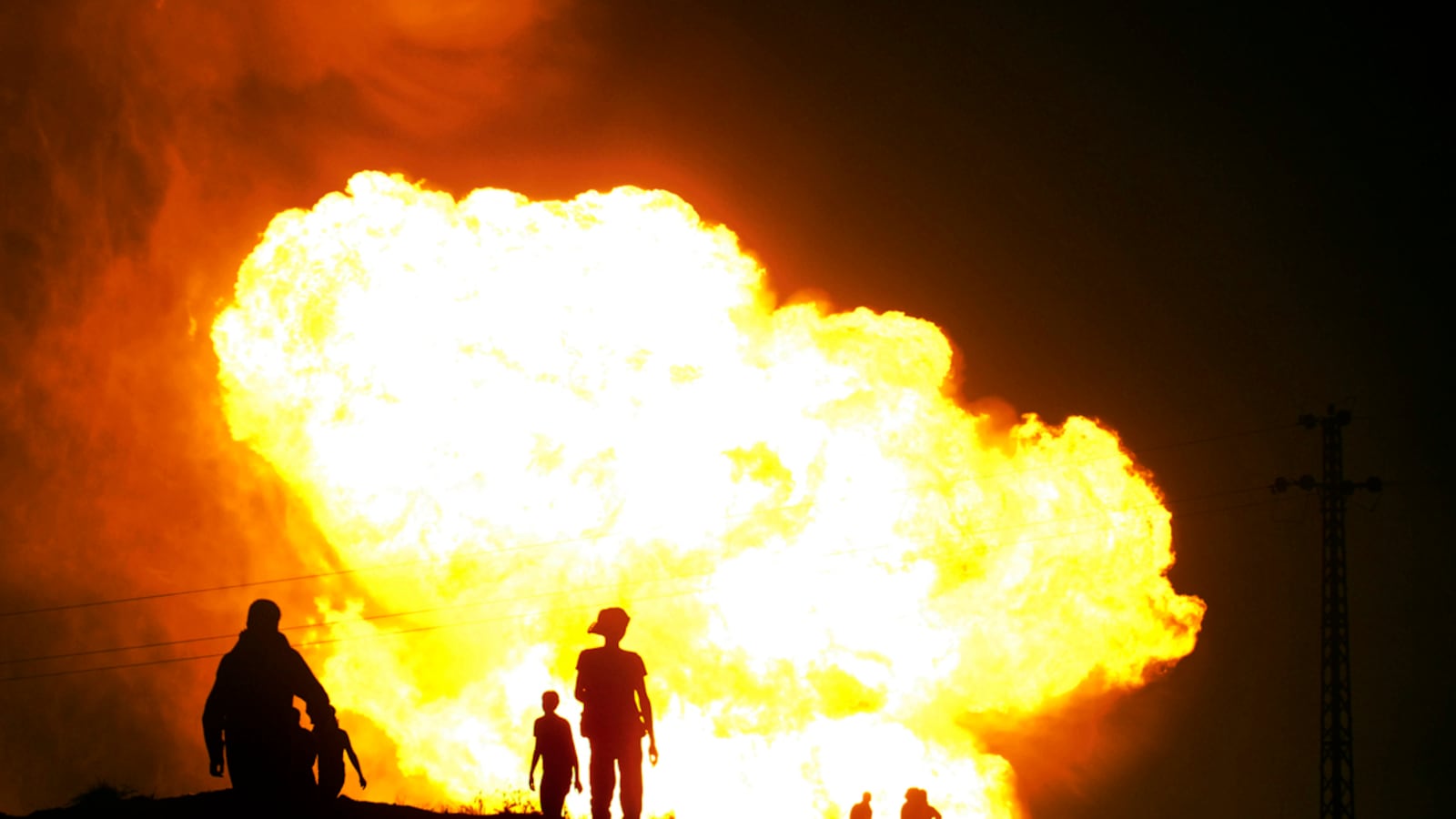Last week a group of armed Bedouin men showed up at the Aqua-Sun resort on the Sinai Peninsula’s east coast. The Bedouins—hailing from the Tarabeen tribe, which extends from northern Sinai into Israel and the occupied territories—claimed an ancestral stake to the land where the destination was built and demanded compensation.
They took over the resort, insisting on the astronomical sum of 4 million Egyptian pounds ($660,000).
The standoff, which threatened to further damage Egypt’s fragile tourism sector, was to be expected, says Sherif El-Gharbawy, the owner of a successful eco-lodge down the road from Aqua-Sun. “The Bedouins were neglected the whole last three decades, and now they are being ignored again,” El-Gharbawy says. “They don’t have any income. They don’t have any education. They don’t see any hope of buying their land.”
Egypt has long had difficulties controlling the Sinai Peninsula and its restive and disenfranchised Bedouin population of about 200,000. The country wrested the area back from Israel after the Yom Kippur war in 1973; Sinai’s northern border abuts the Gaza Strip. The area—which one international report describes as “a semidetached region”—has always been seen, first and foremost, as a security buffer, says Human Rights Watch researcher Heba Morayef. “It’s been dominated by the intelligence services and the army,” says Morayef. “The consistent approach to Sinai has been from a security perspective—a zero-tolerance one.” After several terrorist attacks there in 2004, the security forces carried out a vicious crackdown that included mass arrests, torture, and holding women and children hostage to get Bedouin men to turn themselves in. Since then, says Morayef, “there has been a complete breakdown of relations between the police and the Bedouins,” with locals frequently attacking police stations to free their relatives or retaliate for police abuse.

Since last January’s uprising, the central government’s hold on the large desert peninsula has become even more tenuous. According to the International Crisis Group and Human Rights Watch, among others, Sinai is home to criminal networks whose activities include drugs and weapons smuggling, human trafficking, and terrorism. All of this threatens the future of the peninsula’s emerging tourism sector.
Aqua-Sun is one of a string of beach resorts that stretch from Egypt’s border with Israel to the peninsula’s tip, offering beautiful views of the Gulf of Aqaba and colorful coral reefs. In the last decade Sinai tourism has boomed, a result of relative security ensured by endless police checkpoints. Deposed dictator Hosni Mubarak spent much of his time in the South Sinai resort of Sharm El Sheikh. Tony Blair, Bill Clinton, and Silvio Berlusconi were frequently his guests there.
Yet even as Egyptian authorities and developers worked to create the so-called Red Sea Riviera, Sinai’s indigenous population was largely shut out.
Tourism revenue—all important to the country’s economy and its foreign-currency reserves—slipped 30 percent in 2011, from $12.5 billion to $8.8 billion. Tourism across Egypt has suffered since the revolution, which drove visitors out of the country during last winter’s high season and has made many hesitant to visit since.
In Sinai, the situation is even worse. There were no tourists at Aqua-Sun during the Bedouins’ takeover, and it is unlikely that there will be any time soon.
Midweek the Bedouin delegation at Aqua-Sun took its own compensation, stripping the resort of anything valuable: air-conditioning units, door and window frames, generators. The problem, says El-Gharbawy—who has lived in Sinai for decades and built a school for local children at the resort he runs—is the way the Egyptian government has dealt with (or rather, not dealt with) the Sinai Bedouins’ traditional land claims. When developers buy land, says El-Gharbawy, authorities recommend that they pay compensation to local Bedouin communities. But they leave the developers to sort things out for themselves.
“The government is selling you a piece of land with problems,” says El-Gharbawy. “They don’t reach any kind of agreement with the Bedouins.” On the other hand, he says, “the Bedouins, they don’t have any papers. They will come and say, ‘Our family holds this area. That’s the border of our tribe.’”
The Egyptian Army and police didn’t intervene in the standoff at Aqua-Sun. The Army says it is not allowed to operate freely by the conditions of the Egypt-Israel Peace Treaty, which makes most of Sinai a demilitarized zone. But observers say the truth is that the army and the police need the cooperation of Sinai’s local population and are afraid to crack down on crime now. “The police are not acting, not responding,” says El-Gharbawy. “I think they’re scared, I think they don’t have clear orders what to do. Their role is zero.”
The security forces’ main interest is controlling arms smuggling and terrorism, says Morayef.
Last spring, the army launched a much-publicized crackdown on terrorist groups in central Sinai—but the results of the operation remain largely unknown. During the past year, a pipeline carrying natural gas from Egypt to Israel has been bombed 10 times.
Curtailing other illegal activities—including human trafficking of African immigrants to Israel—is not a law-enforcement priority. “The authorities have made a decision that they can’t afford to crack down on these networks.” says Morayef. “There is either a lack of ability to conduct proper law enforcement or a political assessment that they can’t afford to.” In either case, she says, “the Bedouin are winning overall there.”
But the majority of Bedouins, who are not involved in criminal activities and simply want more access to government services and greater opportunities, are watching with concern the growth of their region’s reputation for lawlessness. The group that shook down Aqua-Sun came from outside the area, says El-Gharbawy, and the local families are angry and embarrassed. “Of course it will affect tourism,” he says.





